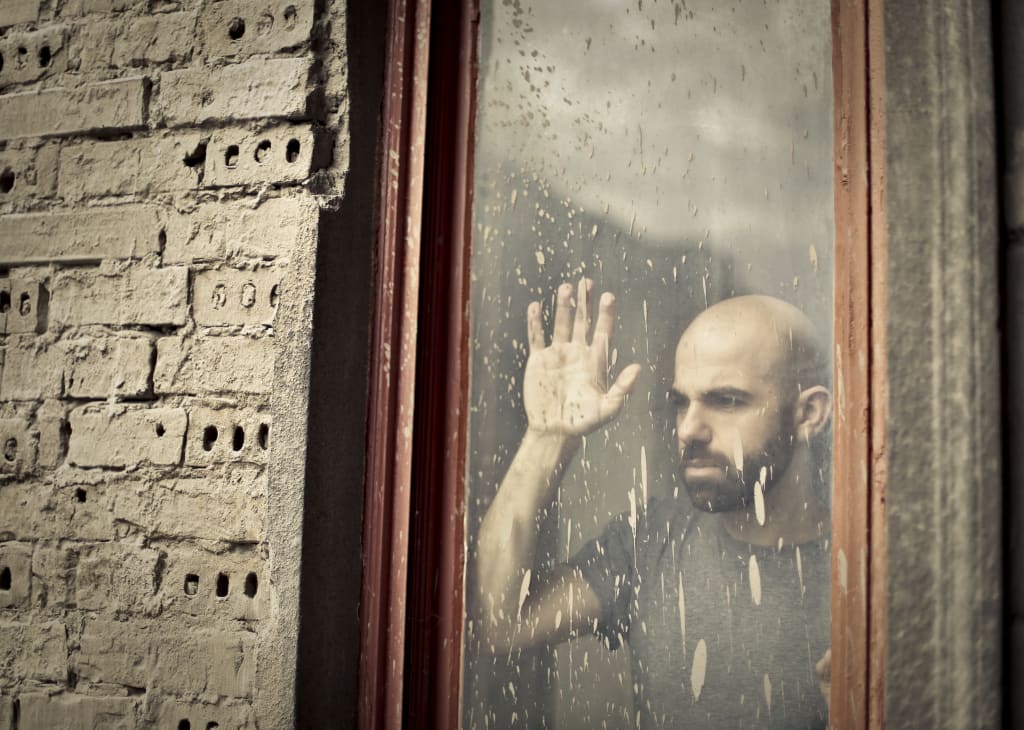The Price of Freedom
I traded my freedom, health, and happiness for a salary. I just didn't realize it till after I lost both.

"Do you have time for a quick chat?"
This is rarely a good thing to get from your Department Head out of the blue. It usually means you are about to get a lot more work or a lot more free time. Based on the fact I was getting this request late afternoon on a Friday, I took an educated guess it would be the latter.
She wasted no time getting to the point.
"You aren't happy, we both know that. Maybe it's time we talk about transitioning you out of your role."
This was, to be fair, entirely correct. I told people I loved my job, and there indeed were parts of it I did honestly like. I loved my clients, I enjoyed most of the people I worked with, and I appreciated the compensation. I made a good salary, had benefits, and was able to work remotely. I had a lot to be thankful for.
I just hated the actual job. The day to day, real work that needed to be done was soul-draining to me. Endlessly clicking on task lists, continually putting out fires, and an artificial urgency unmatched outside of hospitals made me dread opening my eyes every day. Knowing that others felt the same way didn't help either, if anything it made it worse, because it made it seem normal. This is just how the #hustlelife is I guess.
Ultimately, the stress and dread built into a full-blown nervous breakdown. I had just finished a particularly frustrating meeting and was putting together my list of unfinished tasks I still needed to complete going into the weekend. I remember looking at the screen, but being unable to read. I could see, but my mind wouldn't process the words. Then I stopped moving, I just froze. I felt my heart pumping out of my chest, I was sweating, and breathing heavy. My stomach turned, and I honestly thought I was having a heart attack at first. I had no pain, just a sense of dread. As I starting overheating I got up and made it to my garage, the coldest part of the house in late winter. By the time my wife found me several minutes later, I was half-naked on our garage floor hyperventilating. I took my clothes off because I couldn't get my body temp down but stopped halfway through because I was unable to will myself to continue to move. I was crying uncontrollably and curled up like a ball.
I was having a full-blown panic attack.
I'm not someone that tends to have this issue. I've been held at gunpoint, fought competitively, and negotiated deals with organized crime without issue. I'm used to high-stress situations, to the point that I seek out difficult, uncomfortable, and dangerous situations. I have a lot of effective coping mechanisms for stress. I mention this only to say when I couldn't handle the stress related to my work, it came as a shock, which just added more pressure.
My wife is my hero, but comforting words are not her strong suit.
"Get up, you aren't this weak. This is just embarrassing, I've never seen you defeated, I won't let you start now."
She said without a hint of compassion.
This is, for the record, just about the absolute worst thing you can say to someone having a panic attack. However, in my case, it worked. It got to the logical part of my brain, which was able to talk down the emotional side that was in absolute chaos. I felt broken, something had to change.
I resolved to get out, and I started my own company to that end, helping people with amazing stories share them. We do book proposals, marketing, podcast booking and really anything needed to spread a positive message. It felt completely different from what I was doing at work and it gave me a sense of purpose, some joy, and the ability to do what I considered meaningful work again. The problem was, it didn't pay anything. I didn't have the time to build it quickly or the money to quit and work it full time. (At least that's what I told myself)
It helped, but it wasn't a quick solution, so my stress continued. I could see the light, but I was still in the tunnel. "A few more months," I told myself, "that's all, just get through the holidays and you can start fresh next year." I convinced myself I could make it and that I had no other choice but to do that. I was, as Tina Fey says, "blorft."
“I was a little excited but mostly blorft. "Blorft" is an adjective I just made up that means 'Completely overwhelmed but proceeding as if everything is fine and reacting to the stress with the torpor of a possum.' I have been blorft every day for the past seven years.”
― Tina Fey, Bossypants
About a month before my "conversation," we had a company-wide meeting. I had volunteered to do what we called Strengths and Obstacles. Essentially everybody tells you what your strengths are, you tell everyone your goals, and then you discuss the obstacles holding you back from achieving them. It's a powerful exercise and one I had wanted to do since I first saw others go through it.
The key to this exercise is radical honesty. This is something most people are not comfortable with. I appreciate it, but I'm also very good at rationalizing a "synthetic truth" to myself. A synthetic truth is a statement/belief that is true, but not real. In my case, I said I had goals related to moving up in the company:
- I wanted to be a department head.
- I wanted to be able to effect change within the organization.
- I wanted to improve as a leader.
These goals were all true, in so far as I believed that's what I wanted. It was the path forward I thought would move me out of the day to day stuff I didn't like while allowing me to keep the parts of my career I enjoyed. I was telling the truth, but it wasn't real, because it wasn't my authentic goal, I just convinced myself it was an acceptable compromise.
The S&O exercise is designed to confront just this kind of self-delusion. My mom might think I'm special, but I'm far from unique in this area as most people that go through this exercise have a similar false narrative about their own life, in one way or another. Sometimes they don't see their own strengths, sometimes they can't recognize their obstacles. The person leading the exercise will push back and help the participant identify where they are misleading themselves. The group is there to provide support and validation that this new truth is authentic. Even when the truth is positive, it can be hard to accept. We tend to become pretty vested in our own view of ourselves and don't really want to talk change it.
In my case, I refused to allow myself to own my real goals. I didn't think I deserved them and I didn't trust myself to get them if I tried. It took almost two full hours of constant back and forth before it hit me like a ton of bricks.
I was trading my dreams for the future and my happiness for a sense of security in the moment.
The facade fell away,
"I don't want to be a department head,"
"I don't want a higher salary,"
"I don't want to lead."
One by one, I just started dropping the false goals. The truth was clear, but I still couldn't say it...
"I honestly just don't want to be here anymore."
I never said it out loud, but it must have been all over my face. The thing is, it still felt good. I didn't admit it to others, but just admitting it to myself felt like a huge load was lifted. I wanted to walk out of there right then and be a new person, the person I had always wanted to be.
I didn't.
I slugged by for another month, I felt a massive sense of relief, but I also held on to the fear of the unknown. I could only focus on the dreams that made me feel expansive and I lost all concern for my work, which felt very restrictive. I disengaged, showing up to meetings, but only physically. I did my job, but barely. I wasn't willing to deal with the stress anymore. I simply wasn't. Still, I let fear hold me back from quitting like I should have. When my Department head offered a month's severance to help me find what I wanted to do, all I could feel was a sense of relief. I needed someone to kick me out of the nest or I'd never fly on my own.
The first Monday I didn't have to log in to my task list was like taking a breath after being held underwater to the point of near-drowning. I felt lighter, happier, even healthier. My friends noticed it instantly.
"You're in a good mood," one said.
"Your voice is different, it has a joy to it that I've never heard from you before," I was told from another.
"Are you high right now? Can I have some?" My best friend asked.
I thought it was temporary. Some kind of self-defense mechanism that would be replaced with impending dread at any moment, but it stayed. A week later, it started to spread. I started playing with my kids more, we had more in-depth talks and more happy moments. After a month, I realized I hadn't had a single fight with my wife. After two months, I looked back and couldn't think of a single "bad" day. I was... happy.
It was a strange feeling at first, the lack of daily stress. Now that I'm used to it, it's addicting. All the "live life" and "speak your truth" the self-help gurus always used to mouth vomit at me makes a bit more sense. When you actually feel free to do what you want and live how you want, it's like a whole new life all together. I'll be honest, I feel like I've lived more in the last few months than I have the last few years.
Now don't get me wrong, that doesn't mean there haven't been problems. A month of runway isn't a long time, especially when you squeeze in every last-minute doctor's appointment before insurance runs out. Your bills don't disappear and rent didn't get any cheaper. Not to mention, the holidays. This is a hard time to be without a steady income and no vast wealth to fall back on. There are moments of fear for sure.
The sad reality is, in some ways, dealing with the stress was easier, because it was simpler. I've had to make adjustments since losing my salary. We canceled our family Christmas trip. We've stopped hanging out with friends as much, and cut back on spending in general. I can't just say yes when my kid wants a new set of shoes or we want a fancy dinner. Those are the easy sacrifices. When my brother-in-law had a seizure and we couldn't afford the plane ticket to send my wife to be with him in the recovery room, that was a hard sacrifice. Money makes everything easier, anyone that says otherwise is either lying or stupid.
Still, not having a built-in safety net can still be a good thing in some ways. It forces you to focus on the short-term. What can I do today, because I don't have time to wait till next week or next month. I have to do it today, if I want to have a house next month. This focus cuts away all the bullshit too. The only thing I have is time, so I have to be ruthless with how I spend it.
I now have a checklist.
- Is it effective?
- Is it fulfilling?
- Is it authentic?
- Is it expansive?
If not, I don't do it. Period.
Is this an overly simple approach, yes. That's on purpose. After years of overly complex process, procedures, busy work, and other time wasters both professionally and personally, it was important to start honoring my time.
I've been fortunate too. I've gotten some fantastic clients, with incredible stories I can't wait to share with the world that brings me fulfillment and purpose. I've been able to join a few amazing teams of people to help with their projects. It's still a balancing act for money, time, and purpose but it all feels in alignment with who I am.
The point is, life didn't magically get easier, but it did become mine again.
I work with people I love and I only do things that feel right. That's success in my mind.
A half dozen of the people I used to work with reached out. Many of them feel now the way I felt then and I'm sure that a lot of people at other companies are all feeling trapped too. They are stuck in the same fear-based life I was.
I encourage you, if you feel that way, don't wait to be forced into an authentic life. Start living it now, on your own terms. It'll be hard, for sure. You'll have to give up some free time in the evenings and you might have to make some adjustments to your lifestyle. It'll be scary as hell.
It'll also be worth it.
I don't know what the future holds, but I know I'm more comfortable with an uncertain life of possibilities than I ever was with my certain life of endless stress.
Life is meant to be lived, not survived.






Comments
There are no comments for this story
Be the first to respond and start the conversation.